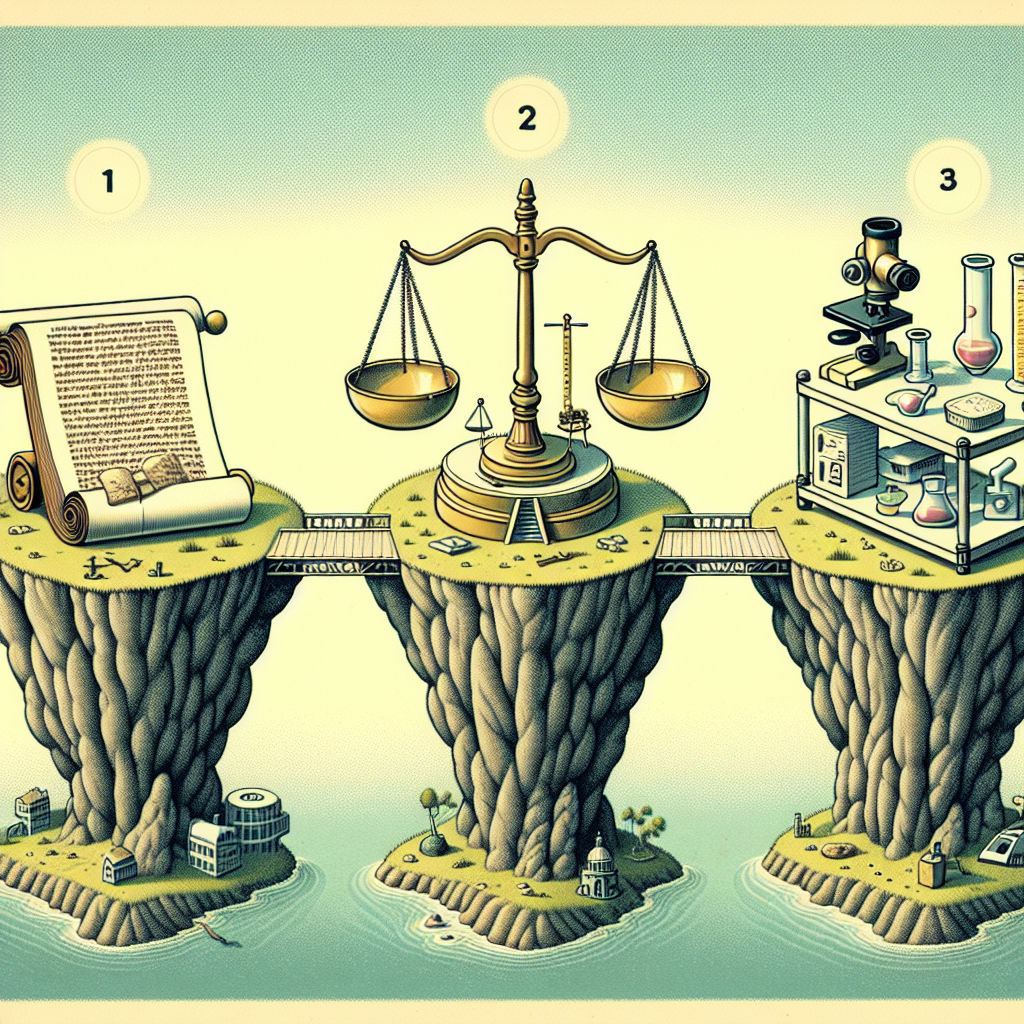In an age where the pursuit of knowledge often seems to collide with deeply held beliefs, the intersection of faith and reason has never been more relevant. As people grapple with questions about existence, morality, and the universe, the dialogue between Biblical teachings and scientific understanding presents fertile ground for exploration. Instead of seeing these realms as opposing forces, we can embrace them as complementary pathways to truth and understanding.
The Harmony of Faith and Science
Many individuals perceive science and faith as dichotomous entities, with science built upon observation and empirical evidence, while faith is seen as a matter of belief and spiritual conviction. However, a closer examination reveals that these two pursuits are not necessarily at odds. The renowned physicist Albert Einstein once remarked, "Science without religion is lame, religion without science is blind." This statement reflects the potential for a harmonious relationship between scientific inquiry and spiritual belief.
Scientific explorations, from the smallest particle to the grandest cosmic phenomenon, reveal a universe governed by laws and order—an order that many believers perceive as a reflection of divine design. For instance, the intricate processes of the natural world, from the complexity of DNA to the delicate balance of ecosystems, inspire awe and wonder that mirror the reverence found in religious texts. Consequently, the quest for understanding in science can lead to a more profound appreciation of faith.
Biblical Teachings as a Foundation for Moral Law
Biblical teachings provide a moral framework that has guided humanity for centuries. The principles found within scripture—love thy neighbor, seek justice, and practice humility—offer a foundational ethical code that transcends cultural and temporal boundaries. These teachings encourage individuals to foster community, care for the vulnerable, and pursue righteousness.
Importantly, the moral laws put forth in the Bible resonate with contemporary ethical discussions. For example, the principles of compassion and stewardship align seamlessly with movements focused on social justice and environmental sustainability. The moral teachings of faith can serve as a catalyst for scientific advancement, guiding technological and medical innovations toward the betterment of society.
Finding Common Ground
One of the most encouraging aspects of the dialogue between faith and science is the multiplicity of voices advocating for understanding and reconciliation. Scholars, theologians, and scientists alike are increasingly recognizing that the pursuit of knowledge and the quest for meaning are not mutually exclusive. Organizations such as BioLogos and The American Scientific Affiliation strive to bridge this gap by promoting discussions that celebrate both scientific findings and theological insights.
Moreover, the advancement of science often prompts deeper questions about creation, existence, and purpose—questions that faith seeks to answer. When scientists confront the mysteries of the universe, they often find themselves revisiting philosophical and theological inquiries, inviting the perspectives of various faith traditions into the conversation. This intersection fosters a spirit of collaboration, enabling individuals to explore the richness of both realms.
The Encouragement to Seek and Discover
For those navigating the complexities of faith and reason, it is essential to approach these discussions with an open heart and mind. The pursuit of truth—whether through scientific inquiry or spiritual reflection—requires curiosity, humility, and a willingness to engage with diverse perspectives.
Each individual’s journey is unique; some may find their faith strengthened by scientific discoveries, while others may explore spirituality as a context for understanding scientific principles. The key lies in recognizing that both paths can lead to a greater understanding of the world and our place within it.
Conclusion: Embracing a Holistic View
In the quest to bridge faith and reason, we can cultivate a holistic view of existence that embraces both spiritual beliefs and scientific exploration. As we seek knowledge, let us remember that our understanding of the world is enriched by diverse perspectives. By fostering respectful dialogues and encouraging curiosity, we can create environments where both faith and scientific understanding can flourish.
In this journey, we are reminded that the pursuit of truth, whether through the lens of faith or reason, ultimately leads to growth, understanding, and a deeper appreciation of the complexities of life. Together, let us embark on this enlightening exploration, confident that the connections we forge will illuminate our path as we seek to understand ourselves, our world, and the divine mystery that binds it all together.
Explore and dig up answers yourself with our BGodInspired Bible Tools! Be careful – each interaction is like a new treasure hunt… you can get lost for hours 🙂


